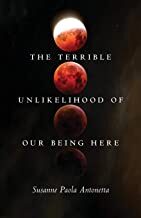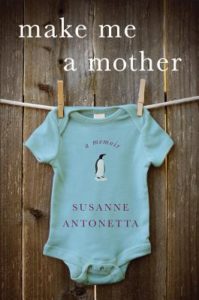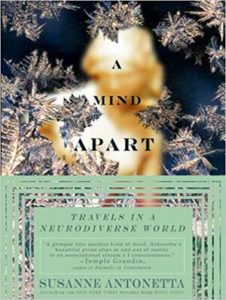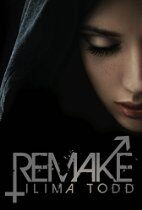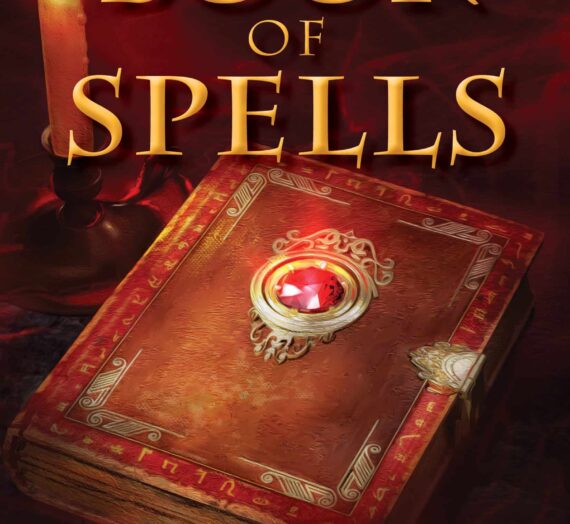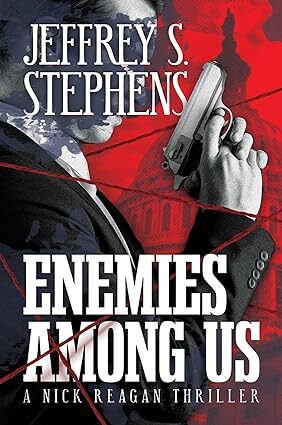The Terrible Unlikelihood of Our Being Here (Volume 1) (21st Century Essays)
by SUSANNE PAOLA ANTONETTA
“Susanne Antonetta’s latest masterpiece is a divinely composed ode to the ‘ungovernable emanations’ that are our selves. Gorgeously poetic, deadpan and inquisitive, terrifying and engrossing, The Terrible Unlikelihood of Our Being Here bridges the distance between physics and the occult, psychology and spiritualism. Antonetta’s road trip to a Summerland of the soul is inspiring, unforgettable, and indispensable.” –Mary Cappello, author of Life Breaks In: A Mood Almanack
“God is Mind,” Susanne Paola Antonetta’s grandmother told her. In The Terrible Unlikelihood of Our Being Here, Antonetta explores questions posed by her family’s Christian Science, turning 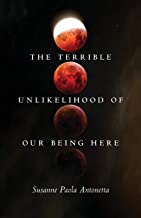 those questions secular: What is consciousness? Does time exist? And what in our universe can be said to be real? In this book, scientific research, family story, and memoir intertwine in lyric fragments that mimic the indefinable movements of quantum particles.
those questions secular: What is consciousness? Does time exist? And what in our universe can be said to be real? In this book, scientific research, family story, and memoir intertwine in lyric fragments that mimic the indefinable movements of quantum particles.
 those questions secular: What is consciousness? Does time exist? And what in our universe can be said to be real? In this book, scientific research, family story, and memoir intertwine in lyric fragments that mimic the indefinable movements of quantum particles.
those questions secular: What is consciousness? Does time exist? And what in our universe can be said to be real? In this book, scientific research, family story, and memoir intertwine in lyric fragments that mimic the indefinable movements of quantum particles. In 2012, Antonetta’s family lost two cottages to Superstorm Sandy, cottages built by her grandfather at the edge of the Pine Barrens in New Jersey. Here her grandmother led seances, swam nude, and created imaginatively a place reflecting the spiritualist paradise known as the Summer Land. Within this tightly controlled family, the author wrestles with her bipolar disorder, drug dependence, and the trauma of shock treatment.
Antonetta conducts interviews with leading scientists to seek answers to her grandmother’s metaphysical questions. She uncovers theories that posit that the world we see is drastically simplified from its reality, that without consciousness the universe would not exist, and that there is no such thing as time.
Ultimately The Terrible Unlikelihood of Our Being Here is a meditation on the legacy of family, on thought and being, and what we humans can know about our world.
An interview with Susanne Antonetta about her new memoir,
1. Your book jumps off from the deaths of your mother and your grandmother, and the bay cabin where you and your grandmother spent the most time together. How do these deaths inform the rest of the book?
I think one of the questions The Terrible Unlikelihood of Our Being Here poses—and it is a real question—is how to think about those you have lost. So, I am exploring grief and ways to think about grief. There’s the memoir piece of telling how my mother and my grandmother actually died. Both ended up with dementia. My grandmother’s dementia erased the mind that, through her Christian Science, she believed was the source of her reality. My mother’s led her to erase me, and only me, from many of her memories.
There’s also the reconstruction piece of writing about death. I try to hold their lives in my hands, really understand them, to celebrate them and in some ways to forgive them.
These are the questions that bring me to things like time theory, to the relationship of the individual self and the world it is so connected to that I don’t believe it can disconnect. In many ways, I found them again.
2. You address your own drug dependence, shock treatment, all very difficult material. How do you find the courage to write about these parts of your life? What advice would you offer writers of memoir?
I think it is really, really hard to write about these aspects of my life. I feel a lot of shame and a real and ongoing grief. I did receive shock treatment as a young girl, I was dependent on heroin. I’ll tell you honestly that when I do book readings, I cannot read the shock treatment parts. I tried once and I broke down on the stage.
I think about others out there who are in the position I was once in, or similar places. And those who love them and want to know how to speak to them and just to have hope. When I look at things that way, it becomes easier to be as honest as possible. Someone is waiting to hear that they’ll come out of situations like mine, stronger than before. That their loved ones can. My advice is don’t think of the writing as handing out scary information about yourself. It’s beautiful to hear from others who’ve been touched by your words. Think of your work as going into a community and building that community.
3. Your grandmother is a fascinating character—in this book she conducts seances, and you have a long passage imagining her life as a nurse in World War I. How do you move from family memoir to the more researched parts of the book?
My grandmother is a good example of that movement. She was a very real woman, who bore four children, moved from one country to another knowing no one there, and nursed the wounded in World War I, one of the most savage wars our world has known. Yet she spent her life as a seeker, someone who wanted to understand the metaphysical realities of our lives. What does it mean to live in a body? Do we really die? Christian Science was a part of that for her. So was spiritualism. I asked the question: what if she was right? What if our minds do live and exist beyond our bodies? I loved and respected her so much. I wanted to learn what science has to tell us about her beliefs.
4. What did you learn from this research that helps you in the real world? That served as a counterbalance to the book’s shock treatment, drug use, and other trauma?
I found all of it transformative, honestly. One of the people I interviewed, time theorist Julian Barbour, told me he hopes his theory of time as a process that holds onto each moment gives us a kind of joy, the joy of belonging to this “marvelous process” that is our world. It does do that for me. I have such tough feelings about those times you mention—anger, shame, survivor’s guilt. But I can see through that larger lens a marvelous process that has created this present that I’m in, that I love.
I have the same tough feelings about the terrible stigma that surrounds bipolar disorder. We have this cultural myth that, oh, we don’t stigmatize mental illness anymore. And that’s nonsense: I can’t even count the number of times each day I hear that any president, next-door neighbor, parent, or whoever else someone doesn’t like must be mentally ill, is probably bipolar, etc. My way of thinking itself is used as an everyday insult. Learning about the incredible process that is our consciousness, its presence as such a powerful and unlikely gift, gives me great peace.
5. You enter imaginatively into the life of your mother, and her early heartbreak, and your grandmother, when she nursed in the First World War. How did you do this kind of imaginative writing? How does it help you think about their lives?
It took me a long time to write those pieces, to give myself permission. I used scene to tell stories like my grandmother’s nursing in the bloody mess that was World War I and my mother’s losing her fiancé. That is, I presented these as straight story, as if I were there. I incorporated what I did know and did tons of research on the reality of nursing in that war. And I brought to bear what I know about these women.
In some sense a person is the sum of all you know about them but also all you imagine about them. It’s very clear in the book that these are inventions, informed inventions. I’m not trying to fool anybody. I think we do that work of trying to inhabit the lives of those close to us—to understand all the times we didn’t directly witness–as an act of love.
6. You are fascinated with questions of how the universe works and we work—spacetime, what we can know about our world, consciousness. How do you apply this to your own life? What do you want readers to take away from these explorations?
It’s interesting, because when I talk to people about what I am researching—the reality of time, the way our universe seems so finetuned to create life, how we must rethink death within the context of timelessness—they may find it rather distant. Then they tell me about how they lost someone, how they sense their very existence has value, but aren’t sure why—and they get it. Oh, actually, the world I live in has structures and these actually speak to my obsessions and my griefs. There are actual theories that tell me I matter, that the lives of those I’ve loved have mattered. That turns the whole concept of me versus this distant thing called science on its head.
7. In The Terrible Unlikelihood of Our Being Here, you visit psychics, one of whom shocks you with her accuracy. You describe seances, with a particular spirit, Simon. You begin this book a skeptic. Where did you end up?
The easy answer is, still a skeptic. I did though end the book feeling as if I needed to abandon my certainties. My husband and I, who love each other deeply, took a telepathy test once. We could name colors and numbers the other was picturing, way beyond the “normal” levels. Now our Pentagon is telling us that for years it has been exploring the reality of alien spacecraft, finally sharing their video archive—videos of craft no one can explain. Who thought that would ever happen? So maybe rather than being a skeptic, I am open. I believe this universe is larger and richer than anything I can imagine.
——
ABOUT SUSANNE PAOLA ANTONETTA
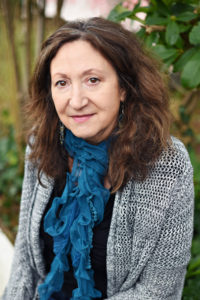 Born in Atlanta but raised in and around Elizabeth, New Jersey, Susanne Paola Antonetta is one of the country’s leading memoirists, advocates for the value of neurodiversity, and translator of the work of the sciences into new ways of understanding human life. A wide-ranging author, she writes about her experiences as a bipolar woman and psychiatric survivor, her early drug dependency, as well as the environment and her life as an adoptive mother. Conducting interviews with today’s leading physics and consciousness researchers, as well as visiting psychics and spiritualists, Antonetta fearlessly yokes together her subjects into an ongoing reflection not just of one life but of our shared humanity.
Born in Atlanta but raised in and around Elizabeth, New Jersey, Susanne Paola Antonetta is one of the country’s leading memoirists, advocates for the value of neurodiversity, and translator of the work of the sciences into new ways of understanding human life. A wide-ranging author, she writes about her experiences as a bipolar woman and psychiatric survivor, her early drug dependency, as well as the environment and her life as an adoptive mother. Conducting interviews with today’s leading physics and consciousness researchers, as well as visiting psychics and spiritualists, Antonetta fearlessly yokes together her subjects into an ongoing reflection not just of one life but of our shared humanity. Her newest book, The Terrible Unlikelihood of Our Being Here, is published by Ohio State University 21st Century Essays Series/Mad Creek Books.
Forthcoming is The Devil’s Castle. She is also the author of Make Me a Mother, Curious Atoms: A History with Physics, Body Toxic, A Mind Apart, the novella Stolen Moments, and four books of poetry.
Awards for her writing include a Pushcart prize, a New York Times Notable Book, an American Book Award, a Library Journal Best Science book of the year, an Oprah Bookshelf listing, and others. Her essays and poems have appeared in The New York Times, The Washington Post, The UK Independent, Orion, The New Republic and many anthologies, and has been featured on radio programs and podcasts as well as digitally on CNN. She lives in Bellingham, Washington and edits the Bellingha Review.
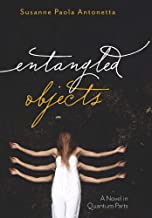 MORE BOOKS BY SUSANNE PAOLA ANTONETTA
MORE BOOKS BY SUSANNE PAOLA ANTONETTA
Views: 32
Book Room Reviews BOOK ROOM REVIEWS - BOOK REVIEWS & WRITING TIPS | VISIT NOW Copyright (C) http://www.bookroomreviews.com. Read more at... http://www.bookroomreviews.com/ .
Book Room Reviews BOOK ROOM REVIEWS - BOOK REVIEWS & WRITING TIPS | VISIT NOW Copyright (C) http://www.bookroomreviews.com. Read more at... http://www.bookroomreviews.com/ .
